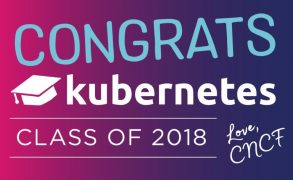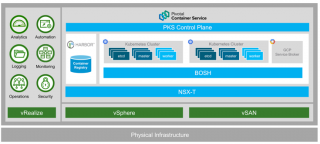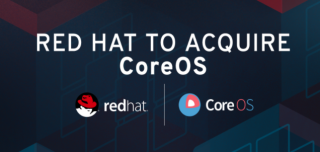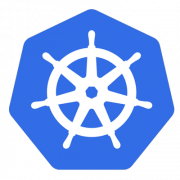Topic: containers
Kubernetes graduates from the Cloud Native Computing Foundation
The Cloud Native Computing Foundation (CNCF) has announced that Kubernetes has moved from incubation to graduate. For this to happen, projects have to demonstrate a thriving adoption, documentation, structured governance process, and a commitment to community success and inclusivity. According to the foundation, this is the first open-source project to graduate. “Kubernetes led to the … continue reading
CloudBees invests in Kubernetes technology for enterprise DevOps
CloudBees has announced it is investing in Kubernetes technology across all areas of its business. The company is providing full support for Kubernetes in CloudBees Jenkins Enterprise, has acquired key Kubernetes talent, and has joined the Cloud Native Computing Foundation. “Kubernetes is all about simplifying how software is built, deployed and managed. Companies also want … continue reading
Pivotal Container Service now available
Pivotal and VMware have announced the general availability of its Kubernetes-based container service Pivotal Container Service (PKS). The two companies along with Google Cloud announced it would be collaborating on PKS at a VMware conference in August. The initial version was released late last year. “As you evaluate your enterprise software portfolio, you’re going to … continue reading
SD Times news digest: InfluxCloud, Datadog’s Java support, and the Cisco Container Platform
InfluxData has announced the latest release of its database-as-a-service, InfluxCloud. New capabilities include improved security, expanded global region support and faster onboarding. In addition, it features pre-built dashboards that allow customers to co-monitor the health of their InfluxCloud as well as new multi-user functionality. “At InfluxData, we pride ourselves on listening to customers and being responsive … continue reading
Industry Spotlight: Why microservices need Service Mesh
More of today’s backend developers are embracing microservices so they can iterate faster and avoid single points of application or website failure. However, what they gain in speed can be at least partially offset by offset by the complexity of operating, debugging, and coordinating changes in a Microservices system. Microservices communicate over the network and … continue reading
Red Hat to acquire CoreOS for $250 million
Red Hat has announced plans to acquire Kubernetes and container-native solution provider CoreOS. CoreOS is known for its enterprise Kubernetes platform Tectonic. Tectonic is designed to provide automated operations and portability across private and public cloud providers. The acquisition is expected to close at $250 million. “The next era of technology is being driven by … continue reading
A new era in IT architectures
This year microservices, containers, and cloud were extremely prevalent. In June, a survey conducted by Evans Data Corp revealed that almost half of all cloud developers are using immutable architectures and microservices. Several new services came out for managing microservices, including those from major tech companies such as Google, IBM, Lyft, and Apache. Both Microsoft … continue reading
Kubernetes releases machine learning toolkit KubeFlow
The Kubernetes project has announced the creation of a new project called Kubeflow, aimed at solving some of the challenges of deploying complicated workloads. Kubeflow is designed to make it easier to use machine learning stacks on Kubernetes. Since it relies on Kubernetes to run, it can run anywhere that Kubernetes runs, making it easy … continue reading
SD Times GitHub Project of the Week: Fn
Oracle wants to accelerate the adoption of serverless technology with the Fn Project. Fn is an open source container native serverless platform designed to run on any cloud or on-premise. It features multi-language support, container native capabilities, and provides developers with all the controls they need to implement functions with complex requirements. Other components of … continue reading
Sumo Logic adds unified logs and metrics solution for apps running on Kubernetes and Docker
Sumo Logic is trying to improve the customer experience for applications that run on Kubernetes and Docker. Its new unified logs and metrics solution uses open-source and native integrations to streamline the data ingestion process. The company’s usage data shows that microservices and container adoption has been increasing. Amazon EC2 adoption in AWS is at … continue reading
SD Times GitHub project of the week: Container-diff
Google is open sourcing a new project designed to analyze and compare container images. Google uses container-diff in its own work, and believes it can be useful for anyone building containerized software. “Containers and the Dockerfile format help make customization of an application’s runtime environment more approachable and easier to understand. While this is a … continue reading
Guest View: HCI: Ready for mainstream?
We’ve all read the eye-popping stats about the number of devices coming online as part of the impending Internet of Things (IoT) wave — about 6.4 billion connected devices in 2016 to almost 20.8 billion by 2020, according to Gartner. The numbers are staggering. Why? Because fundamentally, most of us take for granted the ability … continue reading














